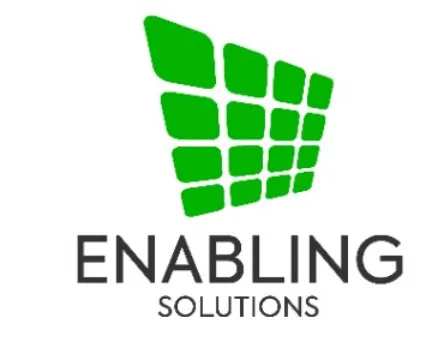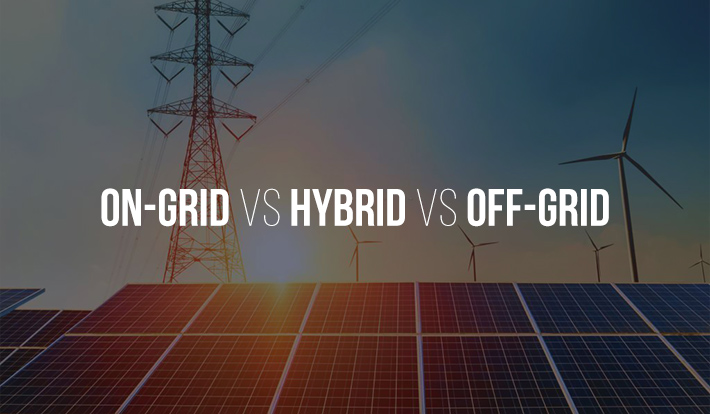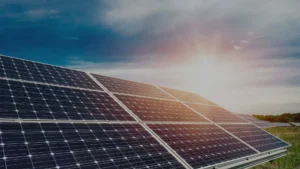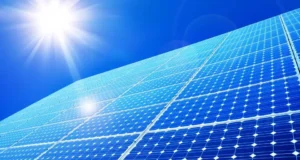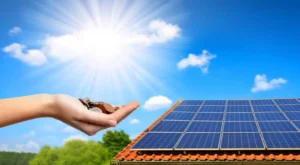As an eco-conscious homeowner, you want to make your abode more energy efficient and sustainable. Installing a solar system is an excellent way to reduce your carbon footprint while cutting back on energy bills. However, with several solar options available, determining the right system for your needs can be challenging. Do you go with an on-grid, off-grid or hybrid solar solution? Each has its pros and cons regarding upfront costs, energy independence, and environmental impact. This article will outline the key differences between the three primary residential solar systems so you can make an informed choice based on your priorities and situation. By understanding how on-grid, off-grid and hybrid solar systems work, you’ll be able to decide which renewable energy option is the ideal fit for your home and lifestyle. The future is bright when you go solar.
On-Grid Solar Systems: Tied to the Utility Grid

On-grid solar systems are connected to your utility’s power grid. They use the grid to supplement your solar power when needed, such as at night or during winter months when sunlight is limited. They also allow you to sell any excess solar power back to the utility.
On-grid systems require solar panels, inverters to convert the direct current (DC) from the panels to alternating current (AC), and a bi-directional meter to measure the energy flowing in both directions. The key benefits of on-grid solar are:
•Low upfront costs since you don’t need expensive batteries.
•Potential to earn money by selling excess solar power.
•Backup power from the grid when your solar panels aren’t producing enough.
However, on-grid systems also have some downsides to consider:
•You’re still dependent on the utility grid, so you’ll face power outages if the grid goes down.
•Many utilities place limits on how much excess power they’ll buy back from you.
•Additional fees may apply, like interconnection charges to connect to the grid.
If saving money on your electric bill, earning income from excess solar power, and maximizing your solar usage during the day are most important to you, an on-grid system could be an excellent choice. But if energy independence and backup power are priorities in case of grid failures, you may want to consider an off-grid or hybrid system instead.
Off-Grid Solar Systems: Energy Independence

Off-grid solar systems are designed to operate independently from the main power grid. They typically include solar panels, batteries, a charge controller, and an inverter. The main components of an off-grid system are:
- Solar panels: Convert sunlight into electricity to charge the batteries and power your home. More panels mean more energy production.
- Batteries: Store the energy produced by the solar panels for use when the sun is not shining. Deep-cycle batteries are commonly used in off-grid systems.
- Charge controller: Regulates the voltage and current coming from the solar panels going into the batteries to prevent overcharging.
- Inverter: Converts the DC power from the batteries into AC power for your home.
Off-grid solar systems provide complete energy independence since they are not tied to the main power grid. They can power essential circuits like lighting, refrigeration, and medical equipment during a power outage. However, they typically require a larger number of solar panels and batteries to meet the energy needs of an entire household which can increase the overall cost.
Installing an off-grid solar system requires carefully assessing your energy usage and needs to determine the right system size. It is best to start with an energy audit to identify how much power you require for essential and non-essential equipment. You may need to adjust your usage or install energy efficient appliances to minimize the number of solar panels and batteries, which can reduce costs.
Off-grid solar systems provide energy security and independence for those in remote locations, but they do require significant investment and maintenance. For some, the benefits of energy self-sufficiency and backup power can outweigh the higher costs. If you want to disconnect from the grid, an off-grid solar system may be the right choice for your home.
Hybrid Solar Systems: The Best of Both Worlds

Hybrid solar systems combine on-grid and off-grid components to provide you with the benefits of both systems. With a hybrid solar setup, your home can operate on solar energy as much as possible but still have the grid as a backup for when your solar panels are not producing enough electricity.
Battery Storage
Hybrid solar systems incorporate battery storage to harness excess solar energy during the day so you can use it at night or when the sun isn’t shining. The batteries allow you to power essential circuits in your home, like lighting, refrigeration, and medical equipment, even when the grid is down. Battery capacity depends on your needs and budget. More batteries provide longer backup power but at a higher cost.
Automatic Transfer Switch
A key part of any hybrid system is an automatic transfer switch. It seamlessly transitions your home between the solar-battery system and the grid based on the power source that is most efficient and cost-effective at any given time. The transfer switch automatically detects when your solar panels and batteries can power your entire home and when you need to pull electricity from the grid. This hands-free technology provides you with a reliable energy source day or night.
Grid-Tie Capability
While a hybrid solar system primarily uses solar energy, it is still connected to your local electric utility grid. This grid-tie capability allows you to sell any excess solar energy you generate back to the utility through a program called net energy metering. The revenue from selling energy back to the grid helps offset your electric bills. If your solar panels and batteries cannot power your home for some reason, the grid also serves as an unlimited backup to keep your essential appliances and electronics running during an outage.
A hybrid solar system offers self-sufficiency through sustainable energy production and storage as well as the security of grid connectivity. By integrating the best elements of on-grid and off-grid solar, a hybrid system provides reliable and affordable green energy for any home.
Comparing the Pros and Cons of Each Solar System Type
When deciding on a solar system for your home, you have three main options: on-grid, off-grid, and hybrid. Each has distinct advantages and disadvantages depending on your needs and location.
On-Grid Solar System
An on-grid solar system connects to your local utility power grid. Any excess solar energy your system generates is sent to the grid, and you receive credits to use when your system cannot meet your needs. The main benefits of an on-grid system are:
- Low upfront costs since you can use the existing utility infrastructure.
- Potential to earn money from excess energy sold to the grid.
The downsides are:
- You remain dependent on your utility for power, especially at night or in winter.
- Excess power sold to the grid may be at a lower rate than retail prices.
Off-Grid Solar System
An off-grid solar system operates independently of any utility grid. It requires energy storage in batteries to provide power when the sun is not shining. Off-grid solar is ideal for those in remote locations without utility access. The main pros of off-grid solar are:
- Energy independence and security.
- Potentially lower energy costs over the long run.
The cons include:
- Much higher upfront costs, often 2-3 times more than on-grid, due to the batteries and charge controllers required.
- Limited energy supply that needs to be carefully managed.
- Requires a backup generator for extended periods of little sunlight.
Hybrid Solar System
A hybrid solar system combines on-grid and off-grid components. It connects to the utility grid but also has battery storage to operate critical loads during a power outage. This provides the benefits of both on-grid and off-grid systems with fewer downsides. However, hybrid solar tends to have the highest upfront costs to install.
In summary, the solar system you choose depends on factors like your budget, energy needs, location, and desire for independence from the grid. Evaluating the pros and cons of each system type can help determine which option is right for your situation.
Which Solar System Is Right for You? Factors to Consider
When deciding on a solar system for your home, there are several factors to consider regarding your needs, budget, and living situation.
Energy Usage
Calculate your average monthly kilowatt-hour (kWh) usage to determine what size system you require. Systems range from 1 kW to 15 kW for residential use. If you have a large home with high electrical demands, an on-grid or hybrid system may suit your needs best as they provide more power. For a smaller dwelling with minimal usage, an off-grid system could sufficiently meet your requirements at a lower cost.
Budget
On-grid systems tend to be the most affordable option as they utilize your existing utility infrastructure. Off-grid and hybrid systems require batteries and charge controllers, increasing the overall expense. However, government incentives like tax credits can help reduce costs for any solar system. Consider the long-term savings on energy bills as well when determining your budget.
Location and Available Space
Ensure you have adequate space for the number of solar panels needed, as well as approval from any homeowner’s associations. Off-grid and hybrid systems also require space for batteries and charge controllers. Assess if there are any local regulations on solar panels for your area. Installation of the panels requires a roof with proper structural support, as well as orientation to maximize sun exposure for the most effective system.
Future Plans
Consider if you intend to expand your system in the coming years. It may be more cost-effective to install a larger on-grid or hybrid system now rather than upgrading from an off-grid system later. Think about if you plan to purchase an electric vehicle, as a hybrid system could provide power to charge it. Your needs may change, so get a system that allows for potential growth and adaptation.
In summary, evaluating factors like your energy usage, budget, location, and future plans can help determine which solar system – on-grid, off-grid or hybrid – is the optimal choice for your unique situation. With the variety of options available today, there is a solar solution to meet every homeowner’s needs.
Enabling Solution’s Providing the state of the art on grid and off grid solar solutions
As electricity demand continues to rise globally, the need for sustainable and renewable energy solutions has never been greater. You may have considered solar energy as an option to power your home or business and reduce your carbon footprint. Enabling Solutions is a leading solar solutions provider focused on designing and installing high-quality solar panel systems for residential, commercial and industrial use. Whether you need an on-grid or off-grid solar system, Enabling Solutions has the experience and expertise to assess your needs, design an optimal system, and complete professional installation to get you generating your own clean energy. With over a decade of experience serving customers across Pakistan, Enabling Solutions is committed to providing innovative yet affordable solar solutions and superior customer service so you can enjoy the environmental and cost-saving benefits of solar energy.
The Benefits of on-Grid vs Off-Grid Solar Solutions
As an environmentally-conscious homeowner, you may be considering solar power for your property. Two options are available: on-grid solar solutions that supplement your utility power and off-grid solar solutions that provide complete energy independence. Each has distinct advantages to consider based on your needs and location.
On-Grid Solar Solutions
On-grid solar systems connect to your local utility power grid, allowing you to use solar energy during the day and utility power at night or when your system cannot meet demand. Excess solar energy is exported to the grid.
- Lower upfront costs since you can start small and expand over time. You continue to use utility power as needed so you only pay for the solar capacity you need.
- Potential to earn money through net metering programs that provide bill credits for exported energy. Some utilities pay cash for excess solar power.
- Continuous power even when solar panels are not producing. The grid acts as your battery, providing consistent energy.
Off-Grid Solar Solutions
Off-grid solar systems operate independently to provide all your energy needs. They require energy storage in batteries to supply power when the sun is not shining.
- Energy independence. Off-grid systems provide consistent power regardless of grid outages or availability.
- Can be installed anywhere. No connection to the utility grid is required.
- Higher upfront costs. You must pay for a system that can meet all your energy needs as well as energy storage. Ongoing maintenance of the system and battery bank is also required.
In summary, both on-grid and off-grid solar solutions have significant benefits. The right choice for you depends on factors like energy needs, costs, incentives, and how much independence you want from the utility. With the many options now available, solar power can be an affordable and sustainable energy solution for homes and businesses.
How Enabling Solutions Provides Cutting-Edge Solar Technology
Enabling Solutions provides cutting-edge solar technology solutions for both on-grid and off-grid solar systems in Islamabad and Lahore. We offer top-tier solar panels, inverters, batteries and complete system design and installation services to enable customers to utilize solar energy for their homes and businesses.
High-Efficiency Solar Panels
Our monocrystalline and polycrystalline solar panels are sourced from tier 1 manufacturers that meet the highest quality and performance standards. We offer top brands panels to suit any energy need.
Advanced Inverters
The inverter is the heart of any solar system, converting DC power from the solar panels into usable AC power. We provide string and microinverters from leading brands to ensure maximum efficiency and reliability.
High-Capacity Batteries
For off-grid systems and backup power, we offer lithium-ion batteries with large power capacities and a long cycle life. The batteries can provide days of backup power for essential circuits during grid outages.
Custom System Design
Our experienced solar engineers will survey your site and energy usage to determine the optimal system design for your needs. We handle all required permits, grid connections, and commissioning to provide turnkey solutions.
Installation and Service
Enabling Solutions’ installation teams are trained and certified to install all components according to the highest safety and quality standards. We also provide ongoing service and support to keep your solar system running at peak performance for decades.
Let Enabling Solutions provide you with a state-of-the-art solar solution and harness the power of the sun. Our cutting-edge products and custom services will enable you to enjoy clean, sustainable energy for generations to come.
Conclusion
As you plan your transition to solar energy, consider your needs, priorities and budget to determine the best system for your situation. An on-grid system provides maximum convenience but limited energy security. An off-grid system offers energy independence but higher upfront costs and maintenance. A hybrid system balances these factors, using the grid for supplemental power. The choice ultimately comes down to how much control and security you want over your energy supply. With incentives and advancements in technology making solar more affordable and efficient, now is the perfect time to go solar in a way that suits your lifestyle. The environmental and financial benefits of solar energy await. The future is bright. Go solar and power your life the way you choose.
